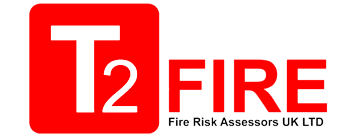As of the 1st of October 2023, the government put in place some changes and new rules for holiday lets in England and Wales.
As the person responsible for a holiday let, it is important that you are aware of these new regulations to understand what, if any apply to you so that you can make sure that your property is compliant.
What Are the New Fire Safety Rules?
Here we have listed some of the new rules and changes;
- Fire Risk Assessments
The previous rules already in place required a fire risk assessment be completed by holiday homeowners before they let out their property.
The new rules state the need for a – comprehensive, full length, written fire risk assessment that covers all aspects of the property and is to be displayed within the premises, ideally in the welcome folder.
Although if suitable you may be able to conduct the fire risk assessment yourself, it is highly recommended that you seek the services of a professional fire risk assessor who will be able to complete the assessment to a very high standard on your behalf.
- Lighting
In the event of a fire, if the internal lighting is lost or the mains supply fails, it can be very difficult for people to see and evacuate safely. Whilst the ‘borrowed light’ from external sources such as streetlights can sometimes be enough, if it is not then additional lighting is something Airbnb’s may wish to consider. This can come in the form of rechargeable or plug in torches which are suitable for most small to medium properties, but larger ones might require full escape lighting which can be determined by a fire risk assessment.
- Fire Doors
There are several small changes and amendments around fire escape routes and fire doors that may need to be taken into consideration;
- Any escape routes from holiday home properties should have fire doors with a 30-minute fire protection capability or a suitable adaption that provides the same level of protection.
- The front doors of one- and two-bedroom apartments should also be self-closing doors.
- For smaller holiday homes, in order to make sure they remain fit for purpose, fire doors need to be checked every 6 months.
Again, the specific requirements for these doors can vary depending on the type, size, layout and circumstances of each individual building.
- Smoke Detectors
The changes suggest that all holiday lets should have linked, hard-wired smoke detectors in all bedrooms and living rooms within the property as well as any protected escape routes, such as staircases, sitting rooms, corridors, hallways and dining rooms that lead to the main fire exit.
For larger properties or homes with more complex layouts, more sophisticated detection systems will likely be better suited, so it is recommended that you liaise with a professional fire assessor for advice.
In addition to this, fire detection and alarm systems should be checked around every six months or so, and it is recommended that property managers test all alarms between every set of guests.
- Fire Safety Equipment
Holiday let owners might want to think about providing fire safety equipment such as fire blankets and fire extinguishers which should be checked once a year by a competent person. It is also advised that checks are carried out weekly to make sure that all the equipment is in good working order and has not been broken, removed, damaged or tampered with.
What Regulations Apply to My Airbnb?
The news rules are designed to ensure that all holiday lets are fire safe, however these are not all legally required, nor do they apply to every single type of property. It is important that owners of holiday lets understand which requirements they need to adhere to, and which are merely suggestions.
The best way to achieve this is through a consultation with a professional fire risk assessor, who will be able to guide you on exactly what is needed to ensure your Airbnb is safe and compliant.

